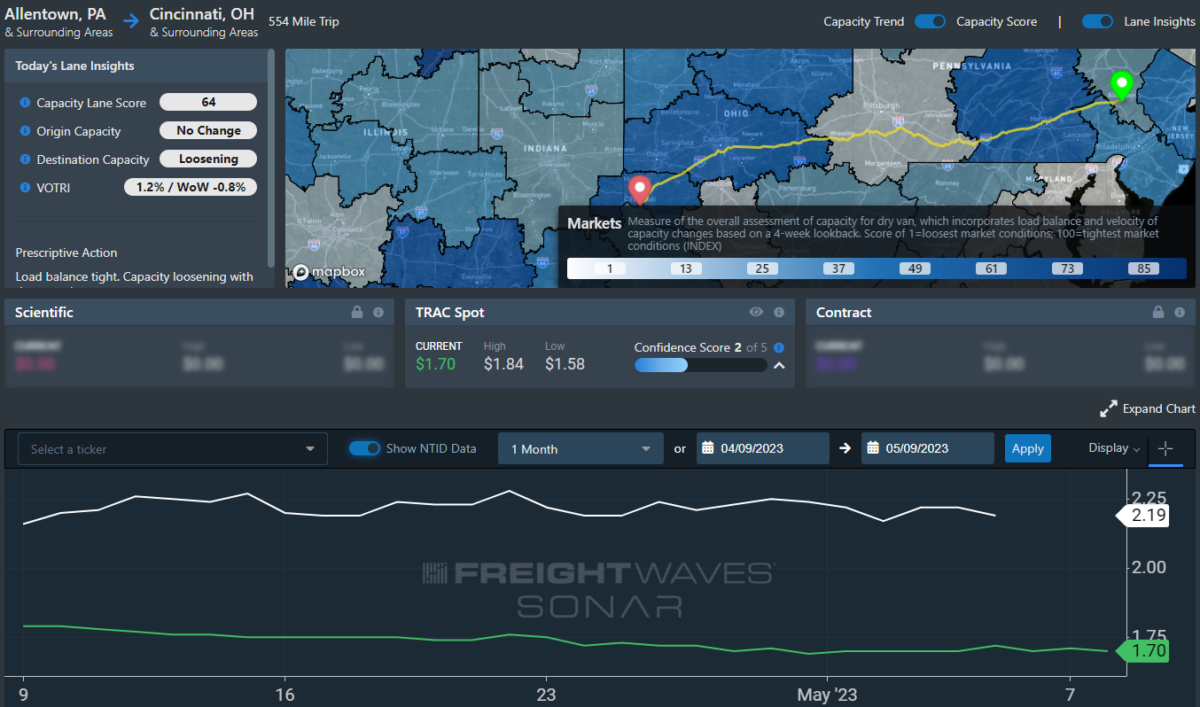Welcome to Check Call, our corner of the internet for all things 3PL, freight broker and supply chain. Check Call the podcast comes out every Tuesday at 12:30 p.m. EDT. Catch up on previous episodes here. If this was forwarded to you, sign up for Check Call the newsletter here.
In this edition: International Roadcheck is around the corner — prepare now; quiet quitting won’t die; and Alaska is the new frontier.

Everyone’s least favorite time of the year is here: International Roadcheck. May 16-18, the Commercial Vehicle Safety Alliance (CVSA) is bringing back its beloved program in which roughly 15 trucks or buses are inspected every minute throughout the 72-hour period in the U.S., Canada and Mexico. This year’s emphasis is on brakes and cargo securement.
Those who have been around a minute know the headache that this event brings. If you’re new, welcome to a time of more-than-normal struggle. Start warning shippers that there might be significant delays in shipments as trucks are randomly chosen for inspection. Building in a little more lead time on deliveries would be the smartest idea to allow for carriers to arrive on time.
Last year’s Roadcheck placed 12,456 vehicles and 3,714 driverse out of service. Top vehicle offenses were brake systems (4,592), tires (3,374), defective service brakes (2,309), lights (2,219) and cargo securement (1,934). The top driver violations were false logs (1,921), wrong class license (1,066), hours of service (367), suspended license (260) and no medical card (222). This wouldn’t be a bad time to remind drivers about the inspections and make sure they have all the required paperwork and documentation ready to roll on May 16. May the odds be ever in their favor.

Supply chain workforce hits the main stage again. This time it came up at the Gartner Supply Chain Symposium. Everyone’s favorite term — quiet quitting, or doing the bare minimum required at a job — in in the spotlight as employee turnover in the supply chain is 33% more than it was pre-pandemic.
Caroline Chumakov, a director and analyst at Gartner, was quoted in John Kingston’s article saying, “Our employees are checked out, challenged and choosing to ‘quiet quit,’ which is a problem because we kind of need their labor.”
Employees who feel disengaged with their work or that their voices aren’t heard have simply chosen to do the bare minimum until something changes — whether it’s at the company or if they follow a new opportunity at a different company. Asking your employees what they need in a way that allows them to freely express themselves (ahem, anonymously) will give an amazing start to some solutions to employee engagement and retention. It could be something as simple as offering cross-training so people can learn new skills or something that everyone appreciates, which is money.

TRAC Thursday. The TRAC lane of the week is Allentown, Pennsylvania, to Cincinnati, a quick little 554-mile trip averaging about $1.70 per mile. Rates in this section of the country leave a lot to be desired, at nearly 50 cents below the national average. This is the time to talk with carriers and ensure they are still able to make money off this run as the rates may be closer to losing money. That said, an all-in rate of $941, before margin, should secure this load with minimal issues, assuming that the rate works well for the carrier. Rates should begin to tick upward when capacity in Cincinnati begins to tighten.

Who’s with whom? Brokers, in Alaska, possibly. In the near future brokers might be looking at some new business in the 49th state. This comes as a result of Alaskan trucking companies that are posting six-figure salaries for drivers to come haul freight in Alaska. Ice Road Truckers just became a little closer to reality for some people. This need for drivers comes with the development of ConocoPhillips Alaska’s Willow project.
Gage Schutte, vice president of freight operations for Alaska West Express, said in an article by FreightWaves’ Rachel Premack and John Paul Hampstead that Alaska West Express raised driver compensation by 11% this year. Each round trip between Fairbanks and Prudhoe Bay on the haul road pays about $1,500, and drivers can expect to make 100 to 115 trips to Prudhoe a year. That means drivers can earn about $150,000 to $170,000 a year, plus benefits.
As more trucking companies expand operations in Alaska, there will be a rise in brokers and dispatchers as well. It’s never too early to try to get in on some oil money.
The more you know
Texas scales back border truck inspections amid backlog
Report finds higher hours-of-service violation rates since 2020 revisions
US lifting vaccine mandate at Canadian, Mexican borders
Borderlands: AI’s rising impact on cross-border trade focus of new report









